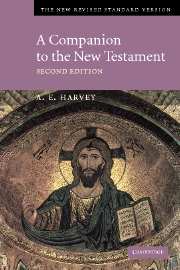Summary
Jesus' ancestry
An account of the genealogy. To the modern reader this may seem a daunting beginning. Even the most laboriously painstaking modern biography would hardly begin with a complete line of descent from a remote ancestor. But in the Jewish culture there were good reasons for doing so, and the reader would know what to look out for. Was Jesus of impeccably Jewish descent (a true son of Abraham) – and, if not (as the unexpected listing of four women, arguably all Gentiles, might suggest), what were the implications? Had he a mission for the world as well as for his own people? Was he of the tribe and family from which people (or at any rate most people, but there were rival views) expected a Messiah to come? Might there be some significance in the exact moment in history at which he had been born? (Counting by generations it was three times fourteen – a multiple of the symbolic number seven – from Abraham.)
These questions all arise from the title by which Jesus is introduced: the Messiah. This Hebrew term, meaning ‘the Anointed One’, was translated into Greek as Christos, and gave Jesus the name by which he was to become universally known. It was an old title, originally used of the first kings of Israel.
- Type
- Chapter
- Information
- A Companion to the New Testament , pp. 13 - 103Publisher: Cambridge University PressPrint publication year: 2004



